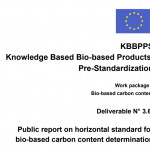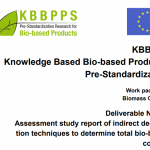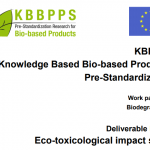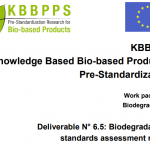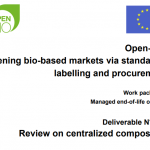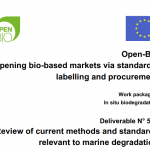Comprehensive map of completed and ongoing programmes addressing curricula in the bio-based sector
Deliverable about the identification of educational programmes addressing curricula related to the biobased industries.
This report is the result of the study carried out by the UrBIOfuture consortium to provide a map of completed and ongoing programmes addressing curricula that involve bio-based activities will be developed in a wide range of educational levels and covering a wide geographical scope in the EU.

